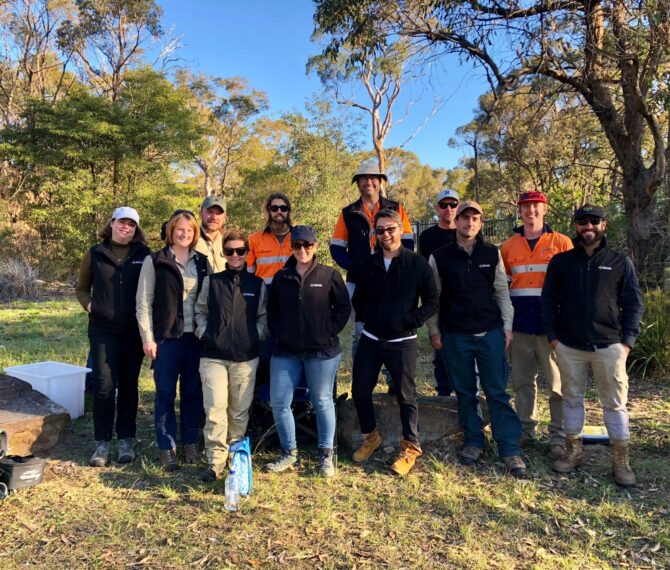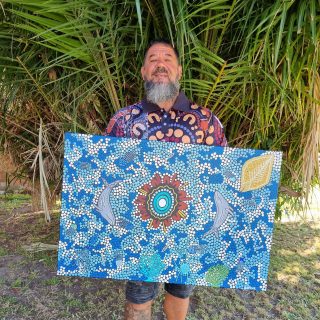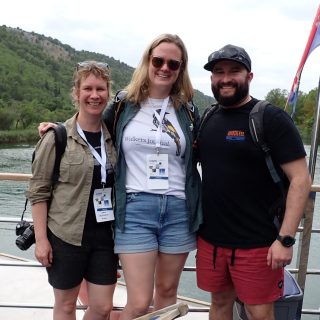11 Biosis ecologists awarded BAM accreditation
The Biosis ecology team now has 11 accredited Biodiversity Assessment Method (BAM) assessors (registered by the Office of Environment and Heritage) and two pending their accreditation certification, making us one of the largest BAM accredited ecology teams operating in NSW.
On 25 August 2017, the NSW government repealed the Native Vegetation Act 2003, the Threatened Species Conservation Act 1995, the Nature Conservation Trust Act 2001 and sections of the National Parks & Wildlife Act 1974. These were replaced by the NSW Biodiversity Conservation Act 2016(BC Act).

The BC Act applies to all of NSW except for listed ‘interim designated areas’ which are exempt from the Act until 24 November 2018. The declared ‘Interim Designated Areas’ are Western Sydney (Camden, Campbelltown, Fairfield, Hawkesbury, Liverpool, Penrith and Wollondilly), the Lower Hunter (Cessnock, Newcastle, Port Stephens, Lake Macquarie and Maitland), the Central Coast, Coffs Harbour and the West Dapto Urban Release Area.
On 25 February 2018, the NSW State Government announced they are seeking to pursue Strategic Biodiversity Certification across all of the declared Interim Designated Areas, including Western Sydney which is currently in progress. This Biodiversity Certification will assess the development impact and conservation benefit at a strategic scale.
Key changes
- The new legislation has changed the way biodiversity offsets are determined and regulated - assessment and approval pathways will now be determined by the ecological value of the land.
- The new Biodiversity Offsets Scheme (BOS) has been introduced as a framework to avoid, minimise and offset impacts on biodiversity from development and clearing, and replaces the previously used biobanking scheme.
- The new Biodiversity Assessment Method (BAM) is a single assessment method for the calculation of biodiversity credits and must be performed by an accredited person.
- Where proposed development or clearing has an impact on biodiversity values above a certain threshold, a Biodiversity Development Assessment Report (BDAR) must be prepared by a BAM accredited person.
- The BDAR will determine the impacts of proposed actions on biodiversity values, biodiversity conservation measures required to avoid or minimise the proposed impact and the relevant offsets required.
- For the biodiversity offset of land our assessors can prepare a Biodiversity Stewardship Assessment Site Report (BSAR) to assess the biodiversity value, set out management and outline the biodiversity credits associated with the land proposed for offset/stewardship site under part 5 of the BC Act.
- For the biodiversity certification of land, our assessors can prepare a Biodiversity Certification Assessment Report (BCAR) to assess the biodiversity value, impacts, credits required to offset those impacts and proposed conservation measures for the land proposed for certification under part 8 of the BC Act.
What the changes mean for developers
The changes will impact rural NSW landowners and developers who require vegetation clearing permits, including those requiring consent under Part 4 of the Environmental Planning and Assessment Act 1979 (EP&A Act) (excluding complying development) that have an impact that meets or is above the BOS threshold or are located in area of Biodiversity Value, State Significant Development and State Significant Infrastructure.
It is not compulsory for development activities under Part 5 of the EP&A Act to apply the BAM, however they can do so voluntarily.
Under the new legislation, it’s estimated an additional 6,000 developments will be subject to biodiversity offset costs each year. Developers will need to carefully consider the biodiversity value of land they are considering developing.
Developers will be required to offset by purchasing biodiversity credits or paying into a fund managed by the Biodiversity Conservation Trust.
How Biosis can help
The BAM Assessor accreditation process is overseen by a panel comprised of three experts from government, academia and industry. Those seeking accreditation must meet rigorous professional standards to ensure they have appropriate level of skill, knowledge and experience to undertake assessments. This certification aligns with the requirements under the BC Act.
The Biosis NSW ecology team now includes 11 experienced and accredited assessors who are ready to assist you in applying the BAM to your project. Biosis strives to achieve best practice outcomes for our clients by reducing offset costs while minimising the risk to biodiversity.
To find out more about our services and how we can assist you with ecological assessments under the BAM, please contact our Sydney office on (02) 9101 8700 or proposals@biosis.com.au
BAM Accredited Assessors:
- Jane Raithby-Veall
- Rebecca Dwyer
- Renae Baker
- Callan Wharfe
- Mat Misdale
- Paul Price
- Anthony Cable
- Ewan Kelly
- Alejandro Barreto
- Bianca Klein
- Tobias Scheid






